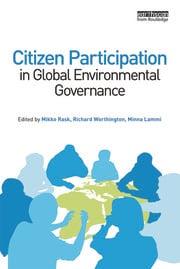Linking Citizen Participation and Education in Sciences: the Case of Uruguay

"Uruguay is a small country with fewer than 3.5 million people located in the temperate zone of South America. Several characteristics make Uruguay an interesting site for the WWViews experiment: it has a highly centralized structure, with about half the population living in or around the capital city Montevideo; a strong civilian democratic tradition that includes mandatory suffrage; and a widespread participatory attitude towards political issues. The political character of Uruguayans goes in hand with a tradition of an established welfare state that has anticipated numerous societal demands since its origins in the early 20th century. However, in some policy areas, namely technology, innovation and environmental issues, the state has not had a very active role until lately"